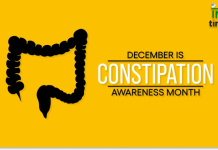
Rett Syndrome Awareness Month is observed every October to raise awareness of Rett syndrome, a rare neurological disorder that primarily affects girls. It is caused by mutations in the MECP2 gene and leads to severe cognitive and physical impairments. While rare, with only about 1 in 10,000 births affected, it is a significant condition that requires more awareness and research into its treatment and management.
What Is Rett Syndrome?
Rett syndrome is a genetic disorder that impacts brain development. It typically manifests after a period of normal growth, with children experiencing a loss of motor skills, speech, and cognitive abilities. It primarily affects girls, as boys with the condition usually do not survive infancy due to the severity of the disorder.
Signs and Symptoms
Symptoms of Rett syndrome often appear between 6 months and 18 months of age, after a period of typical development. Key symptoms include:
- Loss of purposeful hand movements, often replaced with repetitive motions such as wringing or clapping.
- Loss of speech and communication abilities.
- Motor difficulties, including problems with walking and coordination.
- Breathing issues, such as hyperventilation or breath-holding episodes.
- Seizures, which are common as the disorder progresses.
Stages of Rett Syndrome
Rett syndrome typically progresses in four stages:
- Early Onset: Initial slowing of development, usually around 6 to 18 months.
- Rapid Regression: Loss of motor and communication skills between 1 and 4 years.
- Plateau: Some stabilization of symptoms, but continued challenges with motor and cognitive skills.
- Late Motor Deterioration: Increased muscle weakness and mobility issues.
Current Treatments
There is no cure for Rett syndrome, but treatments focus on managing symptoms and improving quality of life. These may include:
- Physical therapy to improve mobility and reduce muscle stiffness.
- Speech therapy to help with communication challenges.
- Medications to control seizures and other related conditions.
- Assistive devices such as communication boards or eye-tracking technology to aid in communication.
The Importance of Rett Syndrome Research
Research into Rett syndrome is ongoing, with promising developments in gene therapy that could one day lead to a cure. Scientists are exploring how to repair or replace the faulty MECP2 gene, offering hope to families affected by this condition.
How You Can Support Rett Syndrome Awareness Month
- Educate Others: Share facts and stories about Rett syndrome to help others understand this rare disorder.
- Donate to Research: Support organizations that are funding research into gene therapies and treatments for Rett syndrome.
- Participate in Events: Attend local walks, fundraisers, or awareness campaigns to show your support.
- Advocate for Better Care: Push for more resources and better healthcare policies for those living with Rett syndrome.
India Time Lines
Conclusion
Rett Syndrome Awareness Month is a crucial time to educate the public, support families affected by the disorder, and fund research for future treatments. Every bit of awareness helps make life better for those living with Rett syndrome and brings us one step closer to a cure.
FAQs
- What is Rett Syndrome?
Rett syndrome is a rare genetic disorder that affects brain development, primarily in girls, leading to severe cognitive and physical impairments. - What causes Rett Syndrome?
It is caused by mutations in the MECP2 gene, which is crucial for brain development. - Can Rett syndrome be cured?
Currently, there is no cure, but research into gene therapy is showing promise. - How can I participate in Rett Syndrome Awareness Month?
You can participate by sharing information, donating to research, and advocating for better care. - What are the key symptoms of Rett syndrome?
Symptoms include loss of motor skills, speech, purposeful hand movements, and breathing irregularities.



































